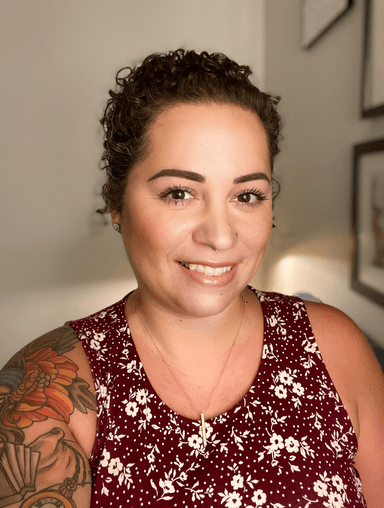
The brokerages that will thrive in 2026 are the ones willing to evolve. And evolution hinges on a thoughtful blend of personalized agent support, stronger community building and leadership that possesses the agility to pivot as needed.
The RISMedia Power Broker Forum at the NAR NXT, The REALTOR® Experience, in Houston, underscored that the traditional transaction-compliance brokerage model can’t sustain agents in today’s market. Agents want mentorship. They want community. And they want leadership that listens.
Personalization Is the Standard
For Mark Woodroof, CEO and designated broker of Better Homes and Gardens Real Estate Gary Greene in Houston, this year’s business climate confirmed something he’s seen repeatedly over four decades: challenging markets reward brokerages that embrace change instead of resisting it.
“We like change,” Woodroof said. “We get in front of the parade—not behind it.”
That mindset has shaped the shift inside his company. For example, Gary Greene, a 63-year-old family-owned brokerage, has moved from a broad, one-size-fits-all value proposition to individualized support systems that agents have wholeheartedly adopted. Those include full-time transaction support, personalized branding and marketing help, and one-on-one business planning tailored to the individual agent’s goals.
And while the support structure matters, Woodroof also stressed the importance of reducing noise.
“Distraction is one of our biggest problems,” he said, noting how media narratives and market speculation pull agents off course. “You can’t control that. You can control your business. Go deeper into your sphere and past customers.”
Database Engagement Will Drive 2026 Success
Personalized support is only part of the equation for success, though. Agents also need to understand what meaningful and consistent engagement with clients looks like over time. J. Lennox Scott, chairman and CEO of John L. Scott Real Estate in Washington state, framed November and December as “the season of joy and engagement,” a time when agents can strengthen relationships through event-based connection and intentional outreach.
John L. Scott Real Estate maintains a database of nearly 900,000 contacts, yet only about 400,000 receive consistent monthly communication. This December, Scott and his leadership team will meet with all of their broker associates to help them reconnect with their contacts.
It’s purposeful, and it aligns with their January 1 strategy. In Scott’s markets, property tax assessments go out on the first of the year, creating a natural moment for agents to send updated home valuations to their top 10 past clients or referral partners.
But Scott also highlighted an industry-wide gap: “Only 5% of agents contact their past buyers on their home anniversary,” he said. “We’re teaching the lost art of engagement. The happy call. The follow-up call. That’s where referrals happen.”
Community Requires More Than a Monthly Office Meeting
Kendall Bonner, thought leader and strategic growth partner at eXp Realty, challenged brokers to redefine what community means inside the brokerage. Compliance oversight and transactional support may be standard, she said, but agents also want something deeper.
“A monthly meeting does not build community,” Bonner said. “Agents want space to collaborate, mastermind, mentor and lead.”
Bonner has brought that philosophy to life through Coffee and Conversations, a peer-led mastermind hosted at local cafes. There’s no heavy training agenda—just a topic, a space and an expectation that everyone contributes. Agents routinely tell her it’s one of the most productive hours they spend.
“Good agents don’t always need to learn something new,” she said. “They need to be reminded of what they already know—and to take action.”
Bonner also underscored agility as a leadership value. eXp believes in collaborative solutions, which involve listening deeply to agents, because they’re the ones with their ears to the market. The leadership team meets several times a year for full-day masterminds dedicated to reviewing challenges and piloting solutions based on what they’re hearing from their agents. One major 2025 innovation that came out of these meetings was the CRM of Choice, which lets agents build a tech stack that matches their individual business models.
“Pivoting isn’t negative,” she said. “It’s necessary.”
Agile Leadership Must Start at the Top
For Anthony Lamacchia, broker-owner and founder of Lamacchia Realty, headquartered in Massachusetts, agility underpins his operational philosophy.
Lamacchia’s firm expanded from six offices to 22 in a few years. That growth exposed gaps in their recruiter-heavy model. He and his leadership team recently replaced it with a regional sales manager structure that better supports recruiting, retention and agent development.
“When something’s broken, you have to change it,” Lamacchia said. “Agility isn’t optional. And if something else needs adjusting next year, we’ll adjust it.”
He also acknowledged his own leadership evolution. After years of blunt market commentary, Lamacchia has shifted toward communicating more positivity—particularly on social media and in agent-facing videos.
“I’m already seeing the impact,” he said. “Your agents watch what you do every day. If you’ve gotten comfortable, remember: It starts with you.”
Mindset, Accountability and Hard Conversations
Bonner also addressed one of the most difficult parts of brokerage leadership: knowing when a coaching conversation becomes a clarity conversation about whether someone is the right fit for the company.
“As a broker, you cannot be afraid to let people go,” she said. “It’s one of the strongest tools you have.”
But her perspective went deeper, framing agent performance as an identity challenge.
“Your level of success will never outperform the identity you have for yourself,” she said. “Agents switch brokerages and coaches, but they take themselves with them. Our work is helping them unlearn the excuses that hold them back.”
Lamacchia agreed, adding that leadership must model the behaviors they’re asking for: “You can’t tell people to make dials if you’re not making dials.”
Across the board, the panelists reinforced that 2026 may bring increased transactions, but the brokers who thrive in the coming year will be the ones embracing and leading change.









